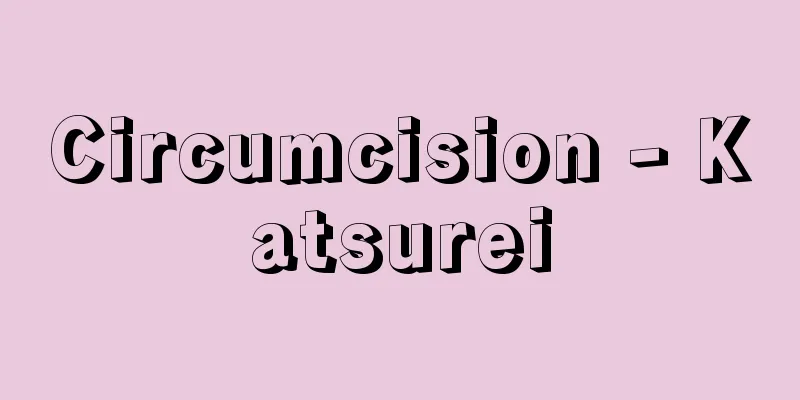Pseudodementia - Gichihou (English spelling)

|
Also called pseudodementia. A hysterical daze in which the person appears absent-minded and unintelligent, gives deliberately wrong answers (irrelevant responses), and behaves like a child (infantilism). German psychiatrist S. Ganser reported on prisoners in pretrial detention (1904). In addition, cases in which a person appears to have dementia due to depression or some kind of brain pathology in old age, but is found not to have dementia when the condition improves, are provisionally called pseudodementia. Source: Heibonsha World Encyclopedia, 2nd Edition Information |
|
仮性痴呆ともいう。ヒステリー性もうろう状態で,ぼんやりして知能が低いかのように見えたり,わざとらしい間違った答えをしたり(的はずれ応答),子どもっぽい態度を示したり(小児症)すること。ドイツの精神科医ガンザーS.Ganserが未決拘禁状態の囚人について報告した(1904)。また,老年期などに抑鬱状態または何らかの脳病態のため一見痴呆があるように見えるが,病状が改善すると痴呆ではないことが判明する場合を暫定的に偽痴呆と呼ぶことがある。
出典 株式会社平凡社世界大百科事典 第2版について 情報 |
Recommend
Radical Republican Party/Radical Socialist Party
…French political party. Its official name is the...
Crested Sifaka - Crested Sifaka
...A general term for a prosimian of the genus Si...
Ishido - Isurugi
This is the central district of Oyabe City, Toyam...
HLB - High-Low-Bee
This stands for the hydrophile-lipophile balance ...
Koemon Imanishi
…Many mathematical tablets were already dedicated...
Itoinunohige - Itoinunohige
…All Japanese species have a similar appearance, ...
Hydractinia uchidai (English spelling) Hydractiniauchidai
… [Minoru Imajima]. … *Some of the terminology th...
système international d'unités
The SI is a system of units that was adopted in 1...
Chang Yu-chun (also known as Ch`ang Yü-ch`un)
[Birth] Shijun 1 (1330) [Died] Hongwu 2 (1369). Ju...
Duchamp-Villon, R.
...The Puteaux School continued its wave of demon...
Nao Prefecture - Nanoagata
One of the prefectures (agata) under the direct co...
Eliza Orzeszkowa
1841‐1910 A representative Polish positivist novel...
Lollards - The Lollards
A general term for followers of the ideas of Wycli...
St. Claude (English spelling)
…A French colonial town located at the foot of Gr...
Casein
Casein is the main component of milk, a phosphopr...









